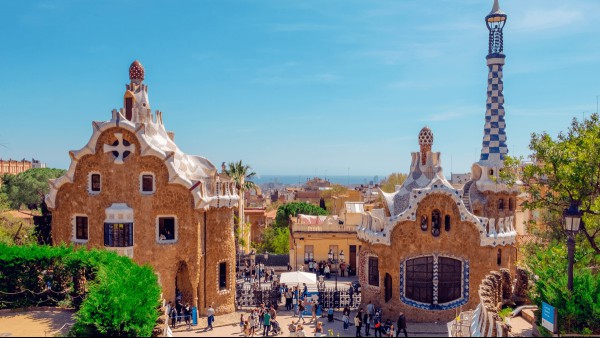How To Talk About Transportation In Spanish
The most stressful part of traveling is usually the traveling part. Learning to navigate an unfamiliar city’s roads or transportation systems can be challenging. And when you don’t speak the language, it’s even more difficult to get around (and even easier to get lost). Say you have an upcoming trip planned to Madrid or Mexico City. You can take some of the stress out of your travels by learning how to talk about transportation in Spanish.

We’ve compiled a guide of some of the key words and phrases you should know related to transportation in Spanish, whether you’re traveling by foot, car, bus, bike, train or plane. Press the play button to hear the pronunciation of each term. And when you’re ready to travel on to other topics, there’s more Spanish vocabulary for you to walk, bike or train to.
Talking About Transportation In Spanish
General Navigation
Where are you going? (formal) — ¿A dónde va?
To the left — a la izquierda
To the right — a la derecha
Straight — recto
On the corner — en la esquina
I am looking for a hotel. — Busco un hotel.
¿Where is there a supermarket? — ¿Dónde hay un supermercado?
Excuse me! I am a tourist and I am lost. — ¡Disculpe! Soy turista y estoy perdido (m.) / perdida (f.).
Traveling By Plane
Airplane — el avión
Airport — el aeropuerto
Terminal — la terminal
Luggage — el equipaje
Hand baggage (carry-on) — el equipaje de mano
Weight limit — el límite de peso
Departure — el despegue
Flight — el vuelo
Security check — el control de seguridad
Gate — la puerta de embarque
Flight attendant — el auxiliar de vuelo
Connection — la conexión
To check in — facturar
To board — subir a bordo
To land — aterrizar
Do you have any liquids in your bag? Water? Juice? — ¿Lleva líquidos en su bolsa? ¿Agua? ¿Zumo?
(Note: Zumo is common to say in Spain, but in Latin America it’s common to say jugo.)
Traveling By Train Or Bus
Public transportation — el transporte público
Train — el tren
Bus — el autobús
Train station — la estación
Bus (or train) stop — la parada
Ticket — el billete
Passenger — el pasajero
Subway — el metro
Track — la vía
Timetable — el horario
Crowded — lleno
To catch — coger
(Note: When you take public transportation, coger is common to say in Spain, but in Latin America, it’s common to say tomar.)
To transfer — transbordar
To validate — picar
(Note: Another way to validate is validar.)
How much is a ticket to the airport? — ¿Cuánto cuesta un billete al aeropuerto?
What time does the train leave? — ¿A qué hora sale el tren?
Traveling By Car Or Bike
Car — el coche
Driver — el conductor (m.) / la conductora (f.)
Bicycle — la bicicleta
Cyclist — el ciclista (m.) / la ciclista (f.)
Headlight — el faro
Windshield wipers — el limpiaparabrisas
Key — la llave
Seat belt — el cinturón de seguridad
Helmet — el casco
To drive — conducir
To park — aparcar
To break down — tener una avería
Driver’s license — el carné de conducir
You’re going too fast; you’re speeding! — ¡Estás conduciendo muy rápido, vas a toda velocidad!
RECOMMENDED NEWS

The Secret Language Of Weekdays
It really only takes a rudimentary grasp of basic astronomy to understand why we measure time with m...

How Many People Speak Spanish, And Where Is It Spoken?
As one of the most spoken languages in the world, Spanish is a popular tongue to learn, as well as t...

The Most Mispronounced Words Of 2023, Revealed
For the eighth year, Babbel has teamed up with captioner’s groups to discover which words gave peopl...

12 French Words From The World Of Aromatherapy
A Brief History Of Perfume Making Perfumes have been enchanting us for thousands of years. According...

How Geography Affects Language
Language geography is a field of study that examines the way languages are distributed across the gl...

When To Use ‘Affect’ or ‘Effect’?
Have you ever found yourself hesitating before using “affect” or “effect” in a sentence? You’re not ...
Comments on "How To Talk About Transportation In Spanish" :